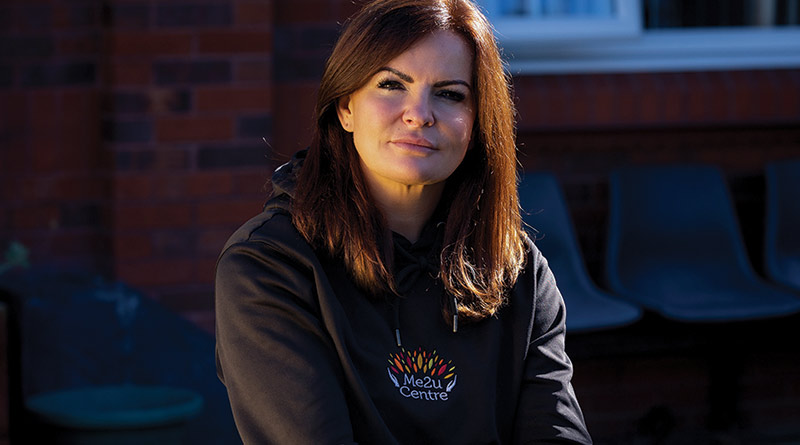De-Institutionalising Dementia Care
Caring for a loved one can be a particularly challenging and stressful experience, caregivers find themselves overwhelmed trying to keep up with their daily lives while caring for a loved one, and respite for caregivers offers the chance to take a rest from caring for a loved one, while they remain in a safe and supportive environment.”
“This break has many benefits for both the caregiver and the individual in need of care.”
“We here at The Carer caught up with Rosie Whittington, (pictured above) founder and director at the Me2U dementia daycare centre in Kirkby, Liverpool (our editor’s home city) to get an insight of respite care for those living with dementia, and the value and support to caregivers, Rosie explains:
At the Me2u Centre, we strive to alleviate the pressures on carers by offering a joyful home from home for their loved ones living with dementia, using creativity and innovation at our daycare facility to stimulate and care for those we support with compassion, dignity and respect.
By de-institutionalising dementia care, we are ensuring that people living with dementia can remain as independent as possible in their own homes, keeping families together and communities intergenerational, while giving carers time to care for themselves, maintain jobs and have essential respite, even on weekends.
There are massive issues around carers experiencing breakdowns, and mental health issues have certainly increased. However, we offer a 24 hour advice line and we’re open seven days a week from 6am to 6pm.
In turn, we want to provide a joyful work environment for the staff at Me2U. Working on the front line of mental health nursing for more than twenty years, I’ve experienced environments where staff are burnt out, turning on one another, retention is low, sickness is high, staff feel like a number not a person, and they just don’t feel valued.
If care workers feel undervalued and underappreciated, then this is going to have a big impact on the care they give, as the job itself can be both physically and emotionally draining. So, if you’re not rewarded both financially and spiritually, then it’s going to cause low morale, resentment, and ultimately, people are going to leave the industry.
At the Me2u Centre, we empower staff with the tools to be transparent, speak their truth and to process things as a team with an open-door policy – it’s an intimate job, which requires a personal culture.
We provide mental health first aid training, and the opportunity to train in yoga, meditation, reiki and mindfulness for our 35-strong team of volunteers, apprentices, university placements, part-time and full-time staff members.
Every four months, one staff member and a plus one is awarded a free holiday, and one staff member gets a free place on a Me2U mindfulness retreat, which offers a three day escape for members of the public – such as nurses, doctors, lab workers, school teachers – by way of ‘caring for those who care for us’.
Our initiatives and practices have contributed to really good staff retention, low sick rates and effective communication. We’ve created a personal culture that we’re proud of, and we now feel that our values and foundations are strong and sound enough to expand to a second location in the north west, so we’re currently fundraising to make this a reality – to broaden accessibility to our flexible day support service, and enhance the quality of life and well-being of our clients.
It will be a space to give more people the specialist care they need and promote participation from all aspects of community life, by facilitating visits from young people, hosting social events, and spreading awareness of dementia, its causes, prevention, and its challenges.
Carers will be able to take advantage of holistic therapy sessions and carer support groups, as well as receive expert advice on dementia care and diagnoses. In addition, as a CQC-registered facility, we will be able to provide domiciliary care to those above and below 65 years.
Prevention is a massive part of what we do. We have close links with primary schools and we’re part of the health and social curriculum in local high schools to educate young people about healthy brains, lifestyle choices, substance mis-use and diet, exposing them and carers to an alternative and a better way of living to prevent the inevitable.
We invite these young people into the Me2u Centre to be dementia buddies and to be part of our intergenerational choir. To watch the exchange, the energy, the emotion between the older and younger generations, who are both so innocent in different ways, is magical and so beautiful.
At the Me2U Centre, we follow the Green Care Farm model, prioritising exposure to the outdoors, fresh air, eating organic, healthy food and even encouraging people to grow their own produce.
It’s ultimately about us being proactive as well as reactive and targeting young people through education.

